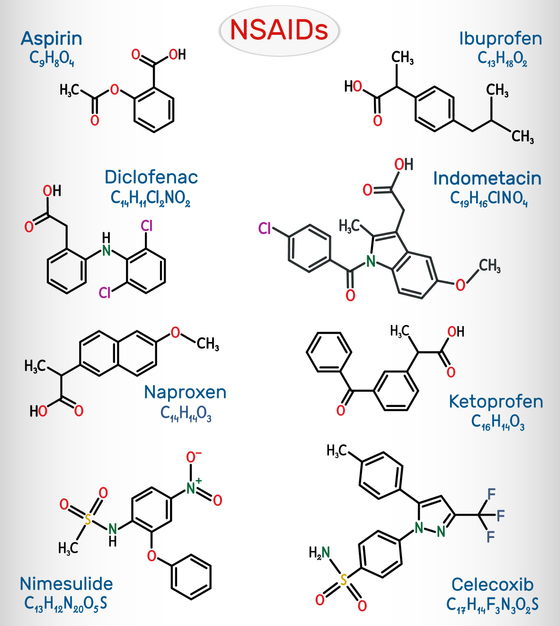Aspirin, ibuprofen and their ilk: The good, the bad and the ugly

We have recently seen 3 cases of acute kidney injury related to a class of drugs called non-steroidal anti-inflammatory drugs (NSAID).
NSAIDs (pronounced “N-saids”) are widely used and readily available either over-the-counter or by prescriptions for human use. Aspirin, ibuprofen, ketoprofen, naproxen, and diclofenac are some examples of this class of drugs that are commonly used in people.
Although most often used as pain relievers, they do much more. They can help reduce inflammation and lower fevers. They prevent blood from clotting (which can be good in some cases or not beneficial in others).
Some of the bad and the ugly:
- They can also affect the stomach lining, leading to ulcers and, at worst, perforations.
- They can cause gastrointestinal upset with vomiting or diarrhea occurring.
- The therapeutic range is narrower in animals (i.e., the degree to which the drug is helpful vs. harmful is different in animals, and damage can occur at much lower doses), meaning there is a small margin for errors.
- They can cause damage to the kidneys or liver in some patients, especially at toxic doses.
There is no doubt NSAID use has been very helpful in our patients, and while their use is widespread, caution should be exercised. The veterinary preparations consider these issues.
The three cases we have treated recently were very different from each other. One dog received an injection of NSAID at the time of routine surgery, one dog ingested part of a bottle of ibuprofen, and the other dog consumed medication meant to treat a horse.
In all of these cases, treatment consists of carefully maintaining the patient’s hydration and monitoring their kidney values and medications to protect the gastrointestinal tract. Sometimes, supplemental feeding is also required. Prolonged lengths of time in the hospital are often needed.
In cases where a patient has ingested an overdose of an NSAID, we can also consider removal of the drugs from the bloodstream with a type of dialysis treatment called hemoperfusion, where we use charcoal to trap and remove the toxins directly from the bloodstream. We can also use a different kind of treatment called therapeutic plasma exchange can also be used. These treatments are time-sensitive and need to be done as soon as possible after ingestion to try to remove as much of the toxic drug as possible before damage occurs.
Hemodialysis is sometimes also required to treat severe kidney damage from either toxicities, infections, or other causes of acute kidney injury.
If you are concerned your pet has ingested a toxic dose of an NSAID, please get in touch with the closest veterinary clinic or a pet poison center for advice. If you think your pet needs dialysis treatment, please get in touch with our hospital for advice. In cases where toxic doses of NSAIDs are suspected, treatment should be started immediately before clinical signs become apparent. In a lot of cases, with early treatment, we can prevent the more severe side effects from occurring.

